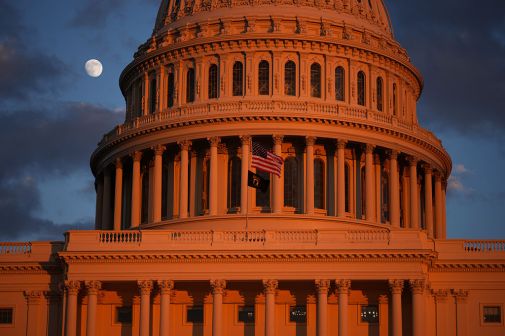 Daniel Castro and Travis Korte
Daniel Castro and Travis KorteIt is up to policymakers to invest in data-driven technologies. According to a study by the Center for Data Innovation at the Information Technology and Innovation Foundation, government needs to take a hands-on approach to update its technology, data analysis and policy.
In creating a more data-driven and innovative society, government — and not just the private sector — needs to play a more involved role, according to report co-authors Daniel Castro and Travis Korte.
One way to be more involved is for government to make its data available in a timely and useful format. In addition, policymakers should focus on efforts to give individuals access to their own data, as seen with the Blue Button Initiative, which grants veterans a pathway to their health care information.
“When companies do not voluntarily provide their customers access to their own data in a reusable, electronic format, policymakers may need to intervene,” the report said. “This is not to say that companies must give up ownership of that data, only that they should strive to provide customers with copies of their own data.”
That’s where lawmakers come into play.
Castro and Korte said policymakers should work to create legal and regulatory frameworks to encourage data sharing.
“In order not to undermine beneficial applications of data, policy discussions should focus on resolving how data can be used, rather than on deciding whether it can be collected and exchanged,” the report said.
The most important step in this process, according to the report, is for policymakers to understand the importance in policy framework and infrastructure that would allow for the maximum amount of innovation.
“By pursuing an ethic of ‘open by default,’ government agencies at all levels can encourage the sorts of open-ended exploration and experimentation that are crucial for sparking data-driven innovation,” Castro and Korte wrote.
Investing in human capital is another way innovation can be improved in government. Countries will have an advantage in the global economy if they can provide the talent necessary to work in data-related fields.
“By becoming early adopters, government agencies can help build local data-savvy communities, demonstrate the feasibility of different technologies, and foster public enthusiasm for data-driven innovation,” the report said. “To this end, government agencies at the federal, state and local levels should continue to engage directly with the data science community and participate in civic hackathons, public coding challenges and other events hosted by the data science community.”
There is a global shortage of workers with the knowledge, skills and abilities to support data-driven innovation, the report said. In 2012, research firm Gartner projected that by 2015, only one-third of the 4.4 million available big data jobs will be filled.






